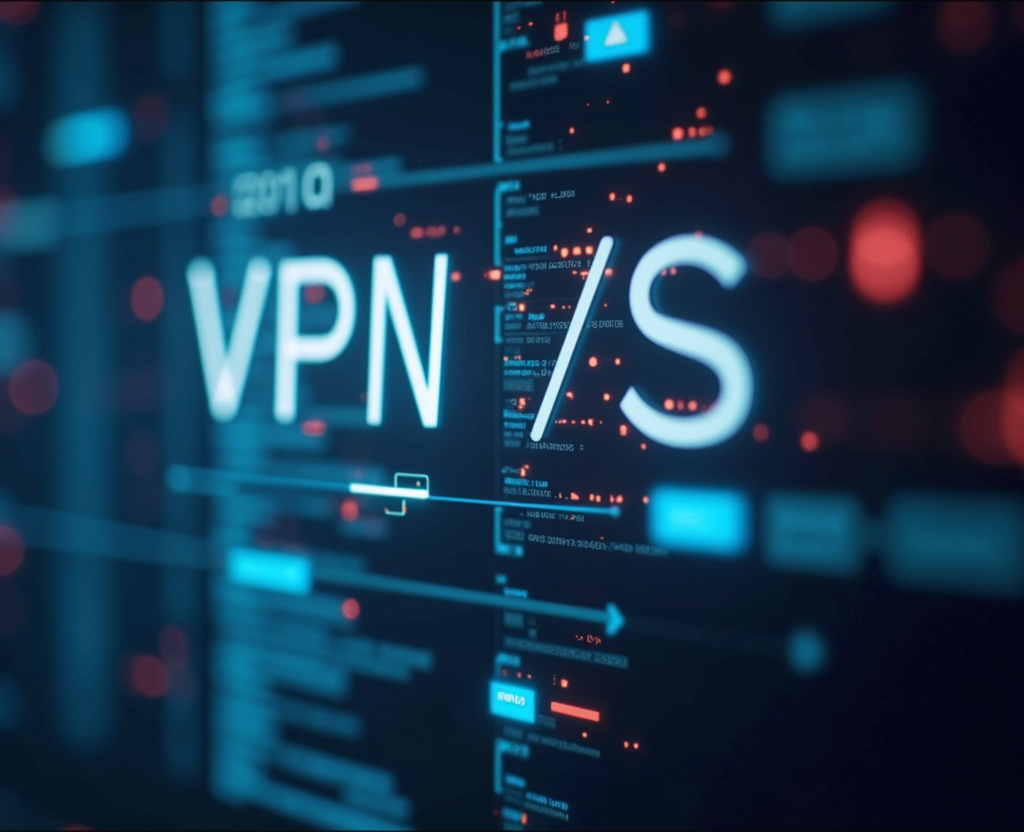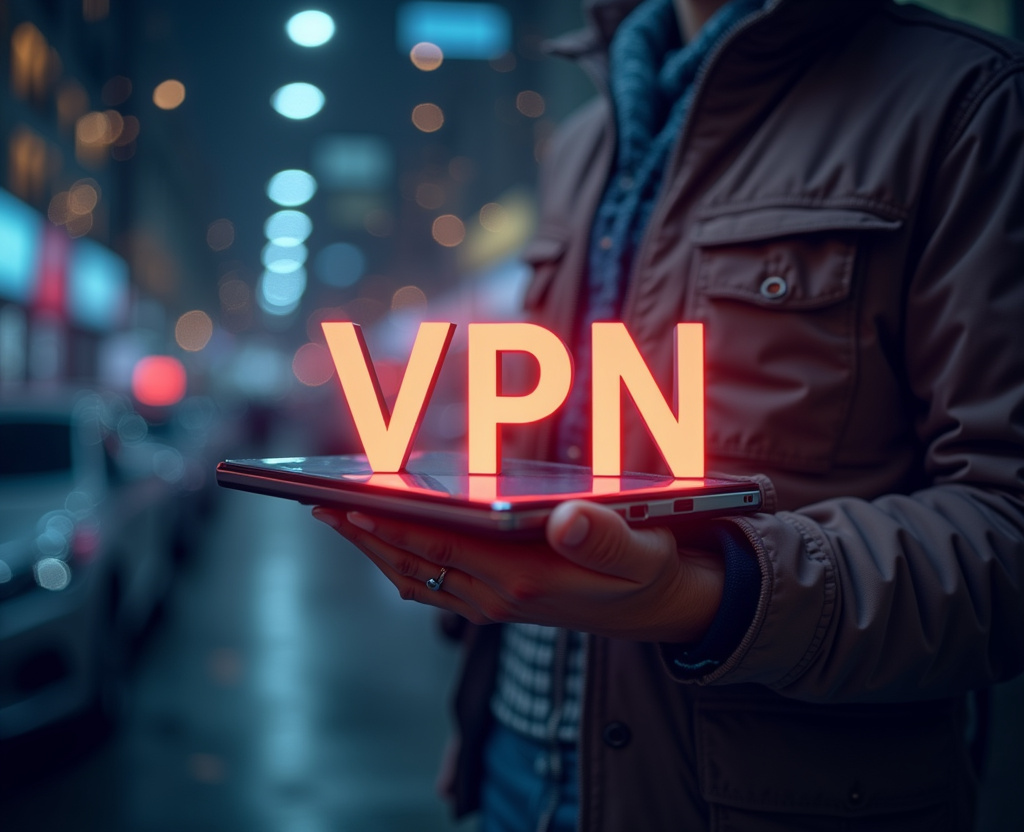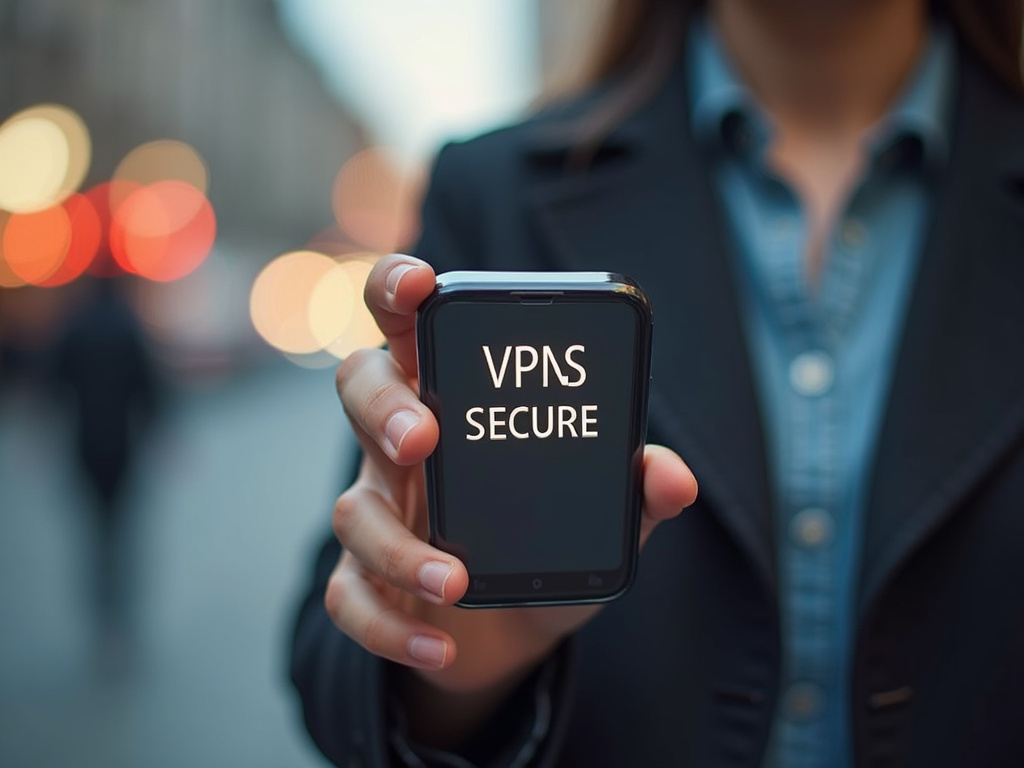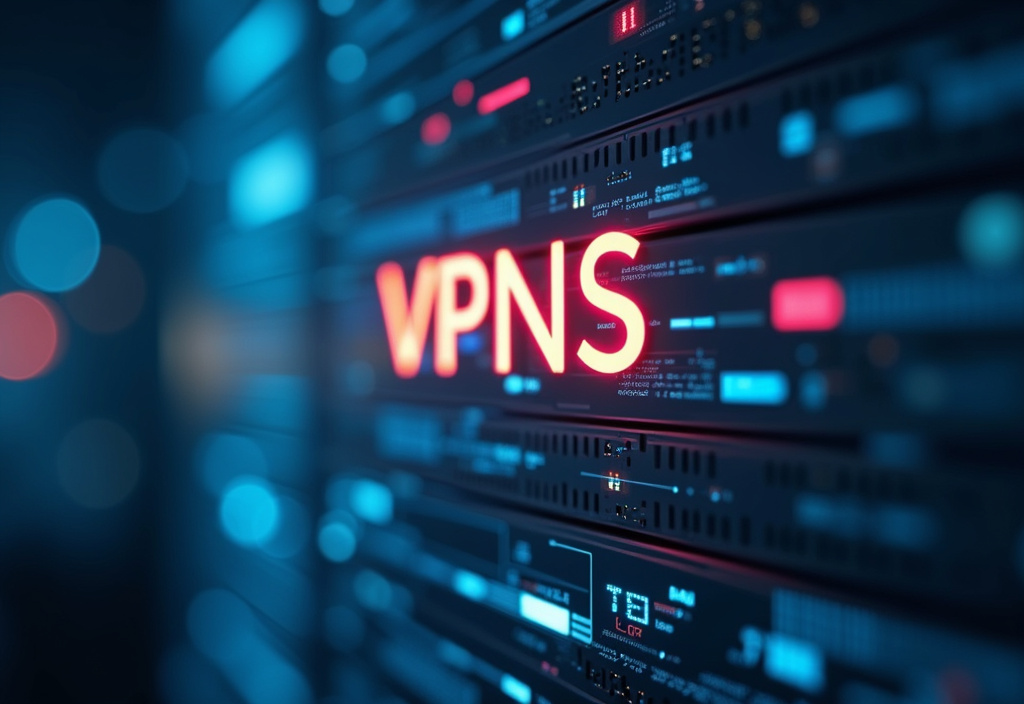VPNs for E-Commerce Logistics: Securing Delivery Networks

Table of Contents
The Growing Need for Security in E-Commerce Logistics
In the dynamic realm of e-commerce, the delivery network stands as the critical infrastructure connecting businesses to their customers. This complex network involves the seamless movement of goods and data, from warehouses to distribution centers and ultimately, to the customer's doorstep. However, the increased reliance on digital communication and data exchange within these networks also presents significant cybersecurity vulnerabilities.
The need to protect sensitive logistics data, maintain operational efficiency, and foster customer trust requires businesses to adopt robust and proactive security measures. An e-commerce VPN (Virtual Private Network) emerges as a vital tool in this context, offering a secure means of fortifying delivery networks and safeguarding the entire logistics ecosystem. By creating encrypted tunnels for data transmission, VPNs provide a crucial layer of defense against eavesdropping, data breaches, and other malicious activities that can compromise the integrity of the delivery process.
Therefore, implementing a VPN solution tailored specifically for e-commerce logistics is not merely an option but a fundamental necessity for businesses aspiring to thrive and maintain a competitive edge in the digital marketplace. This article delves into the crucial role of VPNs in securing e-commerce delivery networks, focusing on key aspects such as logistics data protection, the enhancement of operational efficiency, and the overall improvement of customer satisfaction. The strategic integration of a VPN as a core security component empowers e-commerce businesses to ensure the integrity of their operations, cultivate stronger customer relationships built on trust, and navigate the intricate landscape of online commerce with a greater degree of confidence and security.
The risks associated with unsecured networks, unencrypted data, and vulnerable communication channels are undeniably too significant to ignore within the e-commerce sector. Businesses that fail to proactively implement robust security measures, such as an e-commerce VPN, risk not only potential financial losses stemming from data breaches and operational disruptions but also face the possibility of irreversible damage to their brand reputation. In an environment where data is a valuable asset and customer trust is paramount to sustained success, securing the delivery network with a VPN represents a strategic investment in the long-term viability and sustainability of any e-commerce venture.
The complexity of contemporary supply chains necessitates coordinated efforts across a diverse range of entities, including suppliers, manufacturers, distributors, and various delivery services. Each of these entities represents a potential point of vulnerability if their communication channels are not adequately secured against cyber threats. A comprehensive and well-designed VPN strategy addresses these inherent vulnerabilities by establishing a unified and encrypted network that extends across the entirety of the supply chain.
This ensures that sensitive information, encompassing inventory levels, detailed shipping manifests, and confidential customer data, remains meticulously protected from unauthorized access at every stage of the intricate delivery process. Moreover, the use of a VPN helps maintain data integrity by preventing manipulation or alteration of information during transit. By adopting a proactive and comprehensive security approach, e-commerce businesses can effectively mitigate the risks associated with cyberattacks, which can lead to severe operational disruptions, substantial financial losses, and erosion of customer trust.
A robust VPN strategy is a key component in building a resilient and secure e-commerce infrastructure, enabling businesses to safeguard confidential customer information, protect their business operations from potential disruptions, and maintain a significant competitive edge in the increasingly competitive digital marketplace. The ability to provide a safe and secure online shopping experience is a powerful differentiator that can attract and retain customers in the long run. In an age where data breaches are becoming increasingly common and sophisticated, customers are more aware of the importance of data privacy and security than ever before.
Therefore, e-commerce businesses must prioritize the implementation of robust security measures, such as an e-commerce VPN, to demonstrate their commitment to protecting customer data and building trust in their brand. The integration of a VPN is not simply a technical solution, but a strategic investment in the relationships that make the e-commerce bussines work.
How VPNs Protect E-Commerce Logistics Networks
The core functionality of an e-commerce VPN within the logistics environment is to establish a secure and encrypted connection for all data transmitted across the delivery network. This sophisticated encryption process effectively transforms sensitive information into an unreadable format, essentially rendering it useless to any unauthorized parties who might attempt to intercept the data during transmission. This is particularly crucial for safeguarding logistics data, which frequently encompasses confidential details such as precise customer addresses, specific order information, and sensitive financial transaction records.
Without the implementation of robust encryption measures, this valuable data is highly vulnerable to interception and potential misuse, potentially leading to identity theft, various forms of fraud, and significant financial losses for both the e-commerce business and its customers. Beyond the essential function of basic encryption, a well-configured VPN can also provide additional layers of security, such as the implementation of multi-factor authentication and the deployment of sophisticated intrusion detection systems. These advanced security features further enhance the protection of the delivery network by rigorously verifying the identity of legitimate users and continuously monitoring network traffic for any signs of suspicious or malicious activity.
For instance, multi-factor authentication requires users to provide multiple independent forms of verification, such as a strong password combined with a unique code sent to their registered mobile device, before they are granted access to the network. This significantly increases the difficulty for attackers to gain unauthorized access, even if they manage to compromise a user's password through phishing or other means. Intrusion detection systems, on the other hand, continuously analyze network traffic patterns for anomalies or signatures that might indicate a potential security breach or ongoing attack.
When suspicious activity is detected, the system can automatically alert security personnel, enabling them to promptly investigate the incident and respond effectively to mitigate the threat. Furthermore, a meticulously configured VPN can facilitate the strategic isolation of different segments within the delivery network. This means that if one specific part of the network is compromised, the VPN can prevent the attacker from gaining access to other critical systems or sensitive data located elsewhere in the network.
This effective segmentation approach serves as a valuable tool for minimizing the potential damage caused by a cyberattack and preventing the attacker from spreading laterally to other parts of the network, thereby containing the breach and limiting its overall impact. Compliance with relevant industry regulations and adherence to stringent data privacy laws is also a critical consideration and an essential requirement for e-commerce businesses operating in today's global marketplace. Many countries and regions have enacted strict regulations governing the collection, storage, and use of personal data, such as the General Data Protection Regulation (GDPR) in the European Union.
A VPN can significantly assist businesses in complying with these complex regulations by providing a secure and encrypted environment for handling sensitive information. By demonstrating a steadfast commitment to data protection and privacy, businesses can foster trust with their customers and avoid the potential for substantial fines and legal penalties associated with non-compliance. Regular and comprehensive security audits, including penetration testing that simulates real-world attack scenarios, are essential for identifying potential vulnerabilities and continuously strengthening the overall security posture of the e-commerce delivery network.
These proactive measures allow businesses to stay ahead of emerging threats and ensure that their security controls are effective in mitigating the risks posed by increasingly sophisticated cyberattacks. The evolving threat landscape requires a continuous cycle of assessment, adaptation, and improvement to maintain a robust security posture.
Implementing VPNs: Best Practices for E-Commerce Logistics Companies
Beyond the critical aspects of security and data protection, a VPN can also significantly contribute to enhanced operational efficiency within the e-commerce logistics framework. This is achieved through the optimization of network performance and the streamlining of communication processes across the entire delivery network. By strategically routing data traffic through a network of geographically diverse and strategically located servers, a VPN can effectively minimize latency issues and improve overall connection speeds.
This translates to faster and more reliable data transfer rates, as well as reduced instances of downtime, all of which are crucial for e-commerce businesses that rely heavily on real-time data to manage inventory levels, track shipments with precision, and coordinate deliveries in an efficient manner. For instance, a VPN can empower delivery drivers in the field to seamlessly access route optimization software and update delivery statuses in real-time, leading to improved efficiency, reduced fuel consumption, and a decreased risk of delays or errors in the delivery process. Furthermore, a VPN can facilitate secure communication and foster seamless collaboration between various teams and partners involved in the complex delivery process.
By providing a secure and encrypted channel for communication, a VPN enables employees, suppliers, and logistics providers to share sensitive information, such as shipment details, inventory updates, and customer feedback, without the inherent risk of interception or unauthorized access by malicious actors. This secure communication channel can lead to improved coordination among stakeholders, a reduction in communication errors, and faster response times to unforeseen issues, ultimately resulting in a more streamlined and efficient delivery operation. In addition to secure communication, a VPN can also support secure remote access to internal systems and resources, allowing employees to work from any location while maintaining a secure and encrypted connection to the company network.
This is particularly important for e-commerce businesses that have a geographically distributed workforce or rely on remote employees and contractors to manage various aspects of their logistics operations. With secure remote access enabled by a VPN, employees can access critical data and applications from any location, empowering them to efficiently and effectively perform their duties regardless of their physical location. This flexibility can improve employee productivity, reduce operational costs, and enable businesses to tap into a wider pool of talent.
Moreover, a VPN can be configured with advanced Quality of Service (QoS) features to prioritize network traffic based on application type or user role. This helps ensure that critical logistics applications, such as real-time shipment tracking systems and warehouse management software, receive the necessary bandwidth and network resources they need to function optimally, even during peak periods of network congestion. By prioritizing critical applications, a VPN can help to maintain the smooth and efficient operation of the e-commerce logistics network, minimizing disruptions and ensuring that customers receive their orders on time and in good condition.
The implementation of a VPN within e-commerce logistics enables the creation of an environment built around streamlined processes, secure communications and a resilient approach to potential disruptions, thereby ensuring enhanced operational capabilities.
Future Trends: The Evolution of VPNs in E-Commerce Delivery
The integration of a VPN solution extends beyond mere logistical and security enhancements; it significantly impacts the customer experience and overall satisfaction. By ensuring the secure handling of sensitive customer data, including personal information, payment details, and shipping addresses, a VPN helps build trust and confidence among customers. This assurance directly translates into a more positive perception of the e-commerce business and a greater willingness to engage in future transactions.
Customers are increasingly aware of the importance of data privacy and security, and they are more likely to choose businesses that demonstrate a strong commitment to protecting their information. A VPN, therefore, serves as a tangible demonstration of this commitment, showcasing the business's proactive approach to safeguarding customer data and fostering a secure online shopping environment. Moreover, the enhanced operational efficiency facilitated by a VPN directly contributes to improved customer service.
Faster and more reliable delivery times, accurate order tracking, and prompt responses to customer inquiries are all benefits that stem from a well-implemented VPN solution. By optimizing network performance and streamlining communication across the delivery network, a VPN helps ensure that customers receive their orders on time, in good condition, and with minimal hassle. This positive experience reinforces customer loyalty and encourages repeat business, which is crucial for the long-term success of any e-commerce venture.
Furthermore, a VPN can mitigate the risk of data breaches and cyberattacks, which can have a devastating impact on customer trust. A data breach not only exposes sensitive customer information but also damages the business's reputation and erodes customer confidence. The financial and reputational costs associated with a data breach can be significant, and it can take years to rebuild customer trust after such an incident.
By implementing a VPN, businesses can significantly reduce the risk of data breaches and protect their customers from the potential consequences of cyberattacks. In the event of a security incident, a VPN can also help to contain the damage and prevent the attacker from gaining access to other parts of the network. This containment capability can minimize the impact of the breach and protect other customers from being affected.
In addition to protecting customer data, a VPN can also help to ensure the integrity of the e-commerce website and online transactions. By encrypting website traffic and protecting against malicious attacks, a VPN can help to prevent website defacement, denial-of-service attacks, and other online threats that can disrupt the customer experience and damage the business's reputation. A secure and reliable e-commerce website is essential for building customer trust and encouraging online sales.
The use of a VPN plays an important role in the development and maintenance of a trustworthy brand, building a positive customer perception on the business. The result is a stronger brand engagement and customer retention. The use of a VPN is, thus, directly linked with the success of the brand.
In conclusion, the adoption of VPN technology within e-commerce logistics is no longer a supplementary measure but a fundamental requirement for businesses seeking to thrive in today's competitive and security-conscious digital landscape. The benefits extend far beyond simple data encryption, encompassing enhanced operational efficiency, improved customer satisfaction, and a robust defense against the ever-evolving landscape of cyber threats. Prioritizing logistics data protection through the implementation of a VPN builds a foundation of trust with customers, assuring them that their sensitive information is handled with the utmost care and security.
This trust translates into increased customer loyalty, positive brand perception, and sustainable business growth. The ability of a VPN to optimize network performance and streamline communication across the delivery network further enhances operational efficiency. Faster delivery times, accurate order tracking, and seamless collaboration among stakeholders contribute to a superior customer experience and reduced operational costs.
By mitigating the risk of data breaches and cyberattacks, a VPN safeguards the business's reputation and prevents potentially devastating financial losses. The proactive approach to security demonstrates a commitment to protecting customer data and maintaining the integrity of the e-commerce platform. For e-commerce businesses considering the implementation of a VPN solution, a thorough assessment of their specific needs and requirements is crucial.
Factors to consider include the size and complexity of the delivery network, the sensitivity of the data being transmitted, the level of security required, and the budget available. Choosing a VPN provider with a proven track record in providing secure and reliable services is essential. The provider should offer robust encryption protocols, advanced security features, and a global network of servers to optimize performance and ensure availability.
Proper configuration and ongoing maintenance of the VPN solution are also critical for maximizing its effectiveness. Regular security audits and penetration testing should be conducted to identify and address any potential vulnerabilities. Employee training and awareness programs are essential for ensuring that all personnel involved in the delivery process understand the importance of security and follow best practices for protecting data.
Looking ahead, the role of VPNs in e-commerce logistics is only expected to grow as cyber threats become more sophisticated and data privacy regulations become more stringent. Emerging technologies such as blockchain and artificial intelligence may further enhance the capabilities of VPNs and provide even greater levels of security and efficiency. E-commerce businesses that embrace these technologies and prioritize security will be well-positioned to succeed in the future.
The investment in a solid VPN is an investment in the future of sales and customer trust. The VPN for retail is essential and critical in these times were technology is more and more needed to maintain customers data away from malicious people. The security of the e-commerce is linked to the survivability of the bussiness.
Stay Updated
Get the latest VPN news, tips, and exclusive deals to your inbox.




